Reserve Advisory Council Members
The Council has 15 voting members and 12 non-voting members. The members include the following:
Voting Representatives
Alternates
Non-Voting Representatives
Former Representatives
Voting Representatives
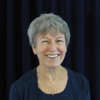
Linda Paul (Chair)
Conservation Representative2001 - Present
"Oceanic refuges that span large geographic distances are needed to protect marine communities from catastrophic events and to provide stable platforms for biological diversity to flourish. The Northwestern Hawaiian Islands encompass the most remote large-scale coral reef system in the world. I'm glad to have been part of the effort that resulted in the protection of one of the last wild places on earth. Let's keep it that way. "
Linda Paul is a long-time advocate for the preservation and protection of the Northwestern Hawaiian Islands. She has coauthored videos, developed marketing materials, conducted numerous media interviews, and given countless presentations about the NWHI. She also initiated the application process supporting the nomination of the Northwestern Hawaiian Islands as a United Nations Educational, Scientific and Cultural Organization (UNSECO) World Heritage Site. For her tireless work, Linda was honored as the National Marine Sanctuary Foundation Volunteer of the Year Award in 2006.
Paul's interest in ocean issues and passion for the Northwestern Hawaiian Islands began when she was a graduate zoology student studying lobsters, focusing on the endemic Hawaiian spiny lobster. During this time she ventured on research vessels to the Northwestern Hawaiian Islands to collect adult and juvenile species.
In addition to being Vice-Chair of the Northwestern Hawaiian Islands Coral Reef Ecosystem Reserve Advisory Council since 2003, Linda became the Executive Director for Aquatics for the Hawaiʻi Audubon Society after volunteering with that organization for years. Her memberships also include Project Director of Pacific Fisheries Coalition and Director of the Ocean Law & Policy Institute, Pacific Forum.
Linda has a Master's in Zoology from the University of Hawaiʻi and a Juris Doctor from UH's Richardson School of Law.
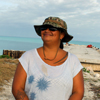
Pelika Andrade
Native Hawaiian Representative2012 - Present
"My first trip in 2008 to Pihemanu.... Kuaihelani... Midway Atoll opened my eyes to the extent and expanse of our Hawaiian universe, but more importantly has awoken an awareness and responsibility that I have accepted and will pass on to my children and theirs. Our kupuna islands, our realm of po, contains countless treasures for us as kanaka and as citizens of our global community. It is in this realm that we are born from and return to. Our heroes have become famous for their travels there and that tradition continues to this day. The North Western Hawaiian Island are where our eldest of kupuna reside and continue to thrive... our corals and reef systems, fish, plants and birds. I feel both honored and privileged to be a contributing part of caring for our islands, our elder siblings, and ensuring a healthy-thriving pae'aina (archipelago) for future generations. "
A native Hawaiian born and raised on the island of Kauaʻi, Pelika Bertlemann says that caring for the islands and oceans has been a part of her family life from a very young age. She has been involved with many organizations and projects working to better our relationship with the environment through conservation efforts and lifestyle changes. For the past five years, she has been working to develop alternate approaches to monitor Hawaiʻi's shoreline and implement a management strategy that supports a healthy, balanced environment.
Pelika is currently Program Coordinator of the Keaholoa STEM Scholars Program at UH Hilo. She was previously Education Specialist for Hawaiʻi Community College's Digital Media Arts Program and Project Coordinator at Na Kalai Waʻa (Moku o Hawaiʻi), a non-profit organization that conducts community educational programs utilizing Hawaiian voyaging and non-instrument navigation as its foundation.
Pelika has a varied background in education, research, fishing, conservation, and business, and participates in many workshops and conferences related to conservation. She has lectured on topics ranging from voyaging, Hawaiian plants and their uses, to digital media arts. In addition to her role on the NWHICRER Advisory Council, her other memberships include OHA Native Hawaiian Working Group for PMNM, Nā Maka 'o Papahānaumokuākea, and Punana Leo o Waimea, and is a crewmember on the Makalii Voyaging Canoe based in Kawaihae, Hawaiʻi Island.
Pelika attended Kamehameha School and holds a Bachelor's Degree in Hawaiian Studies from UH Hilo and a Master's Degree in Hawaiian Studies from the University of Hawaiʻi at Mānoa. She has visited the NWHI on two occasions to conduct scientific and cultural research, once to Midway in 2008 for 10 days and once to Nihoa, Moku Manamana, and French Frigate Shoals in 2010 for 10 days.

Don Schug
Research Representative2001 - Present
Don Schug has spent more than twenty years studying the economic and social aspects of fisheries and fisheries management at the community, national, and international levels. His doctoral research in Papua New Guinea entailed an ethnographic study of artisanal fisheries in the Torres Strait, while his duties as an economic planner in American Samoa included monitoring changes in the highly industrialized U.S. tuna harvesting and processing sectors.
Don's fisheries-related research and applied work has taken him to many places in the United States and abroad. He has worked extensively in the Pacific islands, including Polynesia (Hawaiʻi and American Samoa), Micronesia (Kiribati) and Melanesia (Papua New Guinea).
Don believes that solutions to many of our natural resource management problems can only be achieved through the integration of information from a range of scientific disciplines, including economics, biology, sociology, and anthropology. As a result, he especially enjoys working with a team of people that can provide a wide range of perspectives and skills.
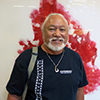
Solomon Pili Kahoʻohalahala
Native Hawaiian Elder Representative2017 - Present
E‘ō‘iwi Lāna‘i au. I am 7th generation native son from the Island of Lāna‘i. I have been nurtured in the ways of my Kūpuna and I continue to perpetuate their teachings in my daily life. I am privileged with the embrace and gifted with the tools of our Kūpuna, their knowledge, experiences, Na mea Hawai‘i and the deep respect they held for each other and for all things that make up Ka Pae ‘Āina Hawai‘i. My responsibility is to nurture and to care for their gifts and to bridge and pass it on to the future generations in the manner it was given to me. E ho‘omau!
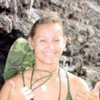
Bonnie Kahapea-Tanner
Education Representative2012 - Present
"Over the years I have seen with my own eyes the changes in the environment, both land and sea. I believe that a balance between the traditional Hawaiian management systems and modern research and resource management must be met in order for Papahānaumokuākea to be protected and managed for the future. "
Born and raised in Kaneohe on the windward side of Oʻahu, Bonnie Kahapea-Tanner is an experienced voyager. Recognizing that the ocean is our home, she is in tune to the subtle changes in the environment.
Bonnie is currently Project Director and Captain for Mana Maoli, a non-profit that provides educational opportunities for all ages, and lectures on Polynesian Voyaging at Winward Community College. She has served for the past five years as the Recreational Boating Representative on the Kaneohe Bay Regional Council, is an active member of ʻOhana Waʻa, and crew of the voyaging canoe Makalii. In 1999, Bonnie served as a watch captain on the E Mau voyage to Micronesia, sailing over 4000 miles with grand master navigator Mau Piailug.
Bonnie participated in the 2002 NOWRAMP expedition to Papahānaumokuākea and participated in the March 2012 Native Hawaiian Research Plan focus group. As a voyager, she brings her expertise in observation, close relationship with the elements, and the history of our kupuna visiting these islands.
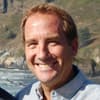
Mark Hixon, PhD
Research Representative2021 - Present
"As a long-term guest of these amazing islands and peoples, I am honored to provide a western science perspective to the reserve advisory committee, knowing that mine is but one worldview among a constellation of cultural and life experiences. "
Mark is a professor in the School of Life Sciences at the University of Hawai‘i at Mānoa, serving as the Sidney and Erika Hsiao Endowed Chair in Marine Biology. His expertise is marine ecology and conservation biology, especially regarding coral reefs, which he has studied in many locales around the world.
Mark completed his PhD at the University of California at Santa Barbara, where he studied the ecology kelp forests. He was then a National Science Foundation Postdoctoral Fellow at the University of Hawai‘i, where he began his studies of coral reefs in the late 1970s. From 1984 to 2012, Mark was a professor at Oregon State University, then was recruited back to UH as an endowed professor in 2013.
His research addresses the questions of how to enhance the resilience of corals to bleaching, what determines the number of fish in the sea, how so many different species naturally coexist on coral reefs, and how marine reserves and artificial reefs help to conserve sea life and enhance fisheries. In 2004, Mark was recognized by the Institute for Scientific Information Citation Index as the most cited scientific author on coral-reef ecology in the United States.
A Fulbright Senior Scholar, Aldo Leopold Fellow, and Fellow of the International Coral Reef Society, Mark serves on the editorial boards of multiple scientific journals. He is past chair of both the Marine Protected Areas Federal Advisory Committee for the National Oceanic and Atmospheric Administration, and the Ocean Sciences Advisory Committee for the National Science Foundation.
Mark has won various awards for teaching, and his public outreach includes TED talks and appearances on the PBS TV show Saving the Oceans. He loves being near, on, and under the sea, especially with his family.
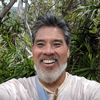
Samuel Gon III
Conservation Representative2022 - Present
Sam ʻOhukaniʻōhiʻa Gon III is the Senior Scientist and Cultural Advisor for The Nature Conservancy of Hawaiʻi & Palmyra – a dual title not seen yet anywhere else in the organization. Sam was conventionally trained as a conservation biologist, and also traditionally trained by a master of oli (Hawaiian chant) and ceremony, Kumu John Keolamakaʻāinana Lake, and underwent the ʻūniki huʻelepo (a traditional rite of passage) as a Hawaiian cultural practitioner of oli and ceremony. Sam is also a kumu [teacher/source] of oli in the hālau [traditional school of learning], Nā Waʻa Lālani Kāhuna o Puʻu Koholā – a responsibility passed to him by his late teacher.
Samʻs dual expertise is in Hawaiian terrestrial ecosystems and species, as well as biocultural conservation. Biocultural conservation strives to “mainstream” Hawaiian knowledge, values and practice into conventional conservation efforts, not only in Hawaiʻi, but globally. As a commissioner in the IUCN, his focus has been on creating and strengthening indigenous membership and participation in international conservation, an evolving and growing theme in the two most recent World Conservation Congresses in Hawaiʻi (2016) and Marseille (2020). Building such approaches in higher education in Hawaiʻi, Sam is affiliate graduate faculty in the University of Hawaiʻi School of Natural Resource and Environmental Management, as well as the School of Life Sciences, and an advising faculty in the universityʻs Biocultural Initiative of the Pacific.
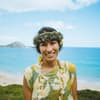
Haunani Kane, PhD
Research Representative2021 - Present
Haunani Hiʻilani Kane was raised at the foot of Olomana mountain in the coastal community of Kailua, Oʻahu, Hawaiʻi. Haunani received a Ph.D. in Earth and Planetary Sciences at the University of Hawaiʻi and is a National Science Foundation postdoctoral research fellow. In the fall she will join Arizona State University as an Assistant Professor with the Global Center for Discovery and Conservation Science in Hilo, Hawaiʻi. Haunani's research combines coastal geomorphology, paleo environmental reconstructions, spatial analysis, and the perspectives of a native islander to investigate how islands, reefs, and island people are impacted by changes in climate.
Haunani has been mentored since her youth in traditional Hawaiian wayfinding and navigation. Haunani has spent nearly 200 days at sea aboard both traditional sailing and modern research vessels. As a Hawaiian voyager, and a climate scientist Haunani's research and teaching relies upon reestablishing ancestral relationships to place. She hopes that through this process she may provide a more inclusive understanding of the impacts of environmental stressors and ensure that the best available climate science data is reflective of all stories of place and their people.
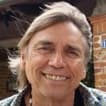
Doug Fetterly
Conservation Alternate2021 - Present
"The Northwestern Hawaiian Islands Coral Reef Ecosystem Reserve represents a beacon of hope to those in the world who care about protecting vital ecosystems. I feel fortunate to be part of the important, dedicated work this Council applies to those ends. "
Doug served six years as Chair for the Sierra Club’s National Marine Team (the Club’s ocean arm) where the pillars are fisheries management, marine & coastal ecosystem conservation, marine protected areas, and marine wildlife & habitat. He wrote thirteen grants allowing his team members each year to: lobby Congress in D.C. on ocean issues; hold town hall events in coastal cities around the U.S.; and take part in steering and promoting March For The Ocean at the Capitol Mall in D.C. Doug also helped conservationists in Guam, at their request, to halt a culvert project that would have directed toxic stormwater into Tumon Bay Marine Reserve. He did outreach in Alaska, speaking with Alaska Natives and environmental studies classes, to advance conversation and inquiries about ocean conservation.
Over ten years ago, Doug came to Hawaiʻi from Northern California where he sat on the Natural Resources Commission for the city of Davis.
On a personal note, Doug and his wife both enjoy surfing, often at Bowl’s. They have travelled widely, but Hawaiʻi is home. He used to race sailboats and rode in a cattle drive in California. Doug has authored a novel, short stories, and is currently working on a TV pilot.
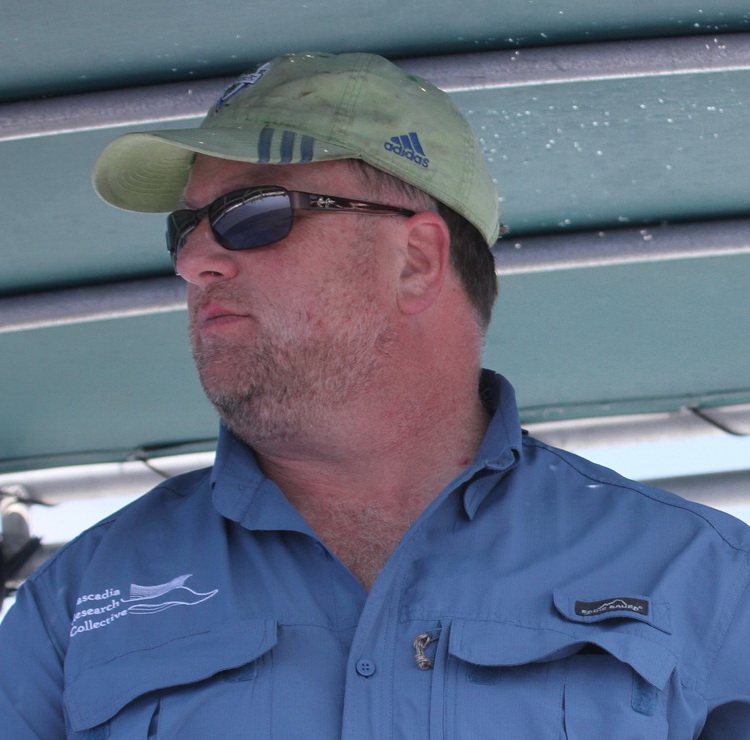
Robin Baird
Conservation Representative2024 - Present
Robin Baird is the Hawai‘i Program Director for Cascadia Research Collective, a non-profit research and education organization, as well as an Affiliate Faculty at the Hawai‘i Institute of Marine Biology, and a member of the False Killer Whale Take Reduction Team. While based on the mainland, he has been studying whales and dolphins in Hawai‘i since 1999. He is the author of "The Lives of Hawai‘i’s Dolphins and Whales, Natural History and Conservation", published in 2016 by the University of Hawai‘i Press, and author or co-author on more than 80 peer-reviewed publications on Hawaiian whales and dolphins.
Kainalu Steward
Native Hawaiian Representative2024 - Present
Kainalu Steward was born and raised in Lahaina, Maui and currently resides in Hilo, Hawaiʻi island. His passion for ʻāina stewardship, ocean science research, and ʻōlelo Hawaiʻi extends from his ʻohana, kumu, community, and love for the places that have raised him. He received his B.A. in Hawaiian Studies with a Marine Option Program certificate from the University of Hawaiʻi at Hilo and obtained his M.S. in Tropical Conservation Biology and Environmental Science from UH Hilo. Kainalu is currently a Ph.D. student in the Department of Earth Sciences at UH Mānoa where he is working to understand the morphology and natural resilience of Lalo in Papahānaumokuākea to climate impacts using geospatial mapping techniques. His goal is to understand these physical processes with kuanaʻike Hawaiʻi as his foundation.
In 2021, Kainalu had the privilege to sail to Papahānaumokuākea for the first time on an Native Hawaiian led research cruise to assess shoreline change at Lalo and intertidal ʻopihi habitat at Nīhoa with various researchers, community members, and resource managers. That trip to our kūpuna islands inspired him and strengthened his understanding of his kuleana to care for and advocate for proper stewardship of Papahānaumokuākea through his work as a Hawaiian researcher and community member. Following that trip, Kainalu participated in two deep-sea research cruises in the NWHI with the Ocean Exploration Trust on the E/V Nautilus vessel as a seafloor mapper, data science intern and cultural liaison. He is humbled to carry this work forward that many before him have accomplished for the protection of Papahānaumokuākea and is committed to representing our Indigenous voices on the RAC.
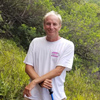
Thorne Abbott
Conservation Alternate2020 - Present
Thorne Abbott is a professional coastal planner who specializes in shoreline issues. He has extensive experience in planning and permitting beach restoration, coastal erosion response, and oceanfront property development throughout Hawaii, Asia and the Pacific. Mr. Abbott helped amend Hawaii’s Coastal Zone Management Act, Maui County’s Special Management Area rules, Maui and Kauai County’s shoreline regulations, and co-authored Maui and Molokai’s community-based Post-Disaster Reconstruction Guidelines and Protocols. He is published in the Ocean and Coastal Management journal and contributed to Springer Books Managed Realignment. Thorne is a strong advocate of conservation policies and he has successfully implemented managed retreat to keep out resorts, homes and people of harm’s way. He Chaired the Legacy Land Conservation Commission, recently Co-chaired a legal seminar on sea level rise adaptation, served on Hawaii Audubon Society’s Board of Directors, and helped the Maui Nui Marine Resource Council’s Coral Recovery Team create a County-adopted framework to guide local actions to improve reef health, water quality and native fish populations. Thorne considers it a privilege to serve on the RAC and SAC and looks forward to contributing.
Rick Hoo
Recreational Fishing Alternate2003 - Present
Alternates
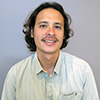
Nakoa Goo
Native Hawaiian Alternate2017 - Present
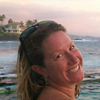
Heather Howard
Education Alternate2020 - Present
Heather is a PADI Divemaster, USCG Boat Captain, Yoga Instructor, Life Coach, and Educator. She has over 25 years of experience in business and project management. Heather is a commercial diver and received her training by volunteering at the Oregon Coast Aquarium as a dive technician. She is a trained coral practitioner and teaches courses in Hawaii about all things coral-related. Born and raised on the west coast of Oregon her love and curiosity for the ocean started at a very young age. In 2007 she made her first trip to the Big Island of Hawaii where her passion to learn and teach about this special place became her full-time focus. She is the co-founder of the Coral Reef Education Institute, a Hawaii-based nonprofit working to reverse the effects of climate change through education, monitoring, and restoration programs.
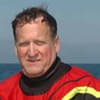
Neal Langerman, PhD
Research Alternate2021 - Present
Dr. Langerman is a chemist, earning a Ph.D. in biochemical thermodynamics at Northwestern University. He received a B.S. in Chemistry from Franklin & Marshall College in Lancaster, Pennsylvania. Following a NIH Post-Doctoral year at Yale, he joined the faculty of the Departments of Biochemistry and Pharmacology at Tufts University Medical School in 1970. In 1975, he went west and joined the Chemistry Department of Utah State University. At both Tufts and USU, he assumed responsibility for departmental safety programs. In 1979, Neal learned of RCRA, and this started him on his career as a consultant.
Neal established his first consulting company, Chemical Safety Associates, in 1980, in conjunction with other members of the USU faculty. He headed this firm until 1997, when he sold his interests in MSDS production and set up his current consulting firm, Advanced Chemical Safety from which he officially retired at the end of 2020. He now pursues areas of interest which broadly impact human well-being.
His professional interests continue to be the prevention of chemical incidents and injuries. For the past year he has studied how businesses can better cope with the pandemic and its many physical, emotional, and economic impacts. He served as the Chair of the Division of Chemical Health and Safety of the American Chemical Society in 2004 and in 2004 and 2013, received the Tillsman-Skolnick Award for contributions to the field of chemical health and safety through the ACS from the Division. In 2018 he was recognized for his Lifetime Contributions to Chemical Safety. He is currently an Alternate Councilor for the Division.
Dr. Langerman is an avid SCUBA diver and photographer. Please visit his professional photography site and his photography retail site to learn more about his love of the underwater world.
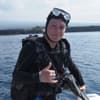
Bill Walsh, PhD
Research Alternate2021 - Present
Dr. Bill Walsh was an aquatic biologist with the Hawai′i Division of Aquatic Resources, in Kona on the Big Island of Hawai′i from 1998 thru 2019. He received his Ph.D. in 1984 in Zoology from the University of Hawai′i at Mānoa with a research emphasis on the behavioral ecology of coral reef fishes with a particular focus on things that go bump in the dark (i.e. nocturnal fish behavior and sheltering). Additional research and management interests include traditional Hawaiian marine resource management practices, recruitment dynamics of reef fishes and the efficacy of marine protected areas. Over the years, Dr. Bill has participated in a number of research expeditions to the Northwestern Hawaiian Islands. In 2008 and 2014 he was formally recognized as an Outstanding Natural Resource Manager by the United States Coral Reef Task Force.
In addition to 45 years of diving experience in the Hawaiian Islands, Dr. Bill is also a lifelong recreational fisherman and has been both a New England commercial lobsterman and trawl fisherman. He has been an independent business owner, former president of the Pacific Handcrafters Guild, two-term Natural Areas Reserves Commissioner, graphic artist and farmer. Dr. Bill retired from the Division of Aquatic Resources at the end of 2019.
Paul Badgley Jr.
Ocean-Related Tourism Alternate2021 - Present
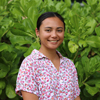
Kammie Dominique-Tavares
Citizen-At-Large Alternate2022 - Present
Kammie Tavares was raised on the Waiʻanae coast where her love and respect for ʻāina grew. Her work focuses on understanding the changes happening in Hawaiʻi’s coastal communities and providing resources to support coastal management. With a BS in Global Environmental Science and an MS in Geology and Geophysics at UH Mānoa, she is well versed in natural sciences. She worked in the Coastal Geology Group for 6 years collaborating with various government agencies on producing coastal geospatial research of sea level rise and coastal erosion. Now, she is expanding her skillset in her next chapter as a PhD student at Mānoa in the Department of Urban and Regional Planning to bridge the gap between science, policy and community initiatives.
Kammie participated in two research trips to Papahānaumokuākea which were focused on studying the geology of the atolls. Her first visit was to Lalo in 2018 right before Hurricane Walaka came through, and the second was in 2021 with an all Native Hawaiian crew who studied how Lalo recovered post-hurricane. This crew also went to Nihoa to study the intertidal zone.
Lauren Nakoa
Research Alternate2024 - Present
Lauren has always had a lifelong relationship with the ocean and an undeniable love for marine life. With that love came a relentless curiosity in marine ecology and a passion for its preservation. She received her BS in Marine Fisheries Biology along with a Minor in Scientific SCUBA Diving from Cal-Poly Humboldt, followed by an MS in Environmental Sciences and Policy from Johns Hopkins University. Lauren's upbringing as a visitor to Hawaiʻi Island has shaped her into the person she is today, and she is eternally grateful to call this beautiful archipelago home. Her professional development in Hawaiʻi has provided invaluable knowledge and experience in marine conservation, watershed restoration, place-based natural resource management, community-based conservation efforts, scientific research, fisheries management, traditional and modern aquaculture techniques, environmental consultation, and sustainability management.
James Morioka
Conservation Alternate2024 - Present
Before joining the Papahānaumokuākea Marine Debris Project (PMDP) (U.S. 501c3 non-profit organization) in 2022, James served as the Operations Manager and Vessel Operations Coordinator for the NOAA Pacific Islands Fisheries Science Center (PIFSC) Ecosystem Sciences Division (ESD). At NOAA, James led and managed marine debris removal efforts in the Papahānaumokuākea Marine National Monument (PMNM), and coordinated large-scale coral reef monitoring surveys in the Pacific Islands region (Hawaiian archipelago, Guam and the Commonwealth of the Northern Mariana Islands, American Samoa and the Pacific Remote Island Areas). Having spent over 10 years at NOAA PIFSC with the Protected Species Division (PSD) Hawaiian Monk Seal Research Program (HMSRP) and ESD Coral Reef Ecosystem Program, James had the opportunity to work at over 40 islands and atolls, conducting 1500 scientific dives over 900 days in the field. As Executive Director of PMDP, James co-leads and co-manages large-scale marine debris surveys and removal operations in the PMNM, having removed over 700,000 pounds of marine debris and spending over 150 days in the field with PMDP. James is excited for the opportunity to serve on the PMNM Reserve Advisory Council and continue his dedication to the PMNM, the Hawaiian Islands, and to help mentor and develop the next generation of ocean stewards.
Barbara Quimby
Recreational Fishing Alternate2024 - Present
Barbara Quimby spent her childhood by the Pacific Ocean in Long Beach, California. Inspired by the waters that connect us, she is now a marine social scientist and Assistant Professor of Marine Science & Policy at Hawai‘i Pacific University. She earned her PhD in Geography from the University of California, Santa Barbara and San Diego State University Joint Doctoral Program and earned her MA and BA in Anthropology. Her research explores human-environment relationships in aquatic spaces, with a focus on non-commercial fisheries (recreational/subsistence) and community and Indigenous-led approaches to coastal marine governance. She has studied fishing practices and “blue” food systems in Sāmoa, Indonesia, California, and Hawai‘i. She enjoys the peace and beauty of coastal fishing. Barbara lives with her family on the windward side of O’ahu.
Daniel Kinzer
Conservation Alternate2024 - Present
Angelina Elido
Conservation Alternate2024 - Present
With a passion for sustainability cultivated through her upbringing on the island of Oʻahu, Angelina pursued a B.A. in Economics to deepen her understanding of sustainable development and environmental law and policy. She then ventured into a solar-powered, hydroponic microgreen farm business to inspire conscious consumerism at local markets. Today, Angelina shines as a field technician and Community Huki Leader with Mālama Maunalua, where she educates volunteer groups on the implications of invasive algae and the importance of environmental awareness. When she’s not working, you’ll find her diving, surfing, backpacking, practicing yoga, or creating her next masterpiece. Angelina is driven to serve on the RAC because she believes that communities, when united, possess the immense power to effect change.
Non-voting representatives from the following agencies
Kim Hum
NOAA/Hawaiian Islands Humpback Whale National Marine Sanctuary
Vacant
Marine Mammal Commission
Vacant
National Science Foundation
Maile Norman
U.S. Coast Guard
Vacant
Department of Defense
Josh DeMello
Western Pacific Regional Fishery Management Council
Jared Underwood
Department of the Interior (U.S. Fish and Wildlife Service - Refuges)
Dan Polhemus
Department of the Interior (U.S. Fish and Wildlife Service - Ecological Services)
Malia Chow
NOAA National Marine Fisheries Service
Eric Roberts
NOAA/National Ocean Service/Office of National Marine Sanctuaries
Vacant
U.S. Department of State
Kealoha Piscotto
Office of Hawaiian Affairs
Brandon Jim On
NOAA/Office of Law Enforcement
Cynthia Vanderlip
State of Hawaiʻi - Division of Forestry and Wildlife
Brian Neilson
State of Hawaiʻi - Division of Aquatic Resources



